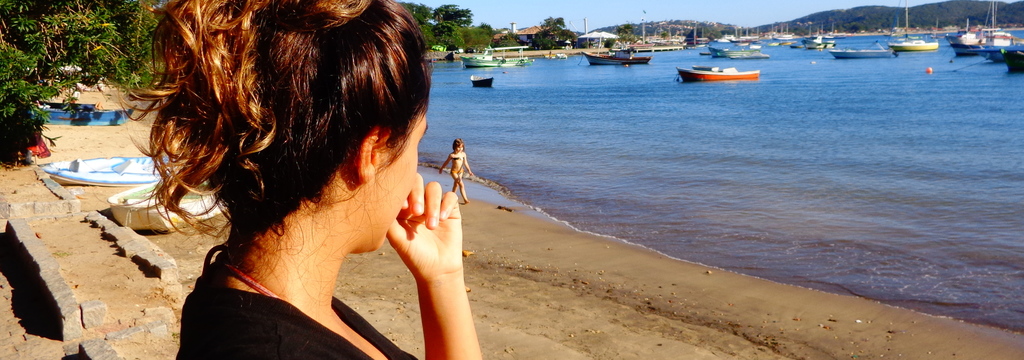High School Programs with Argentina
Live with an Argentinian Host Family
Lorem ipsum dolor sit amet, consetetur sadipscing elitr, sed diam nonumy eirmod tempor invidunt ut labore et dolore magna aliquyam erat.
Lorem ipsum dolor sit amet, consetetur sadipscing elitr, sed diam nonumy eirmod tempor invidunt ut labore et dolore magna aliquyam erat, sed diam voluptua. At vero eos et accusam et justo duo dolores et ea rebum. Stet clita kasd gubergren, no sea takimata sanctus est Lorem ipsum dolor sit amet. Lorem ipsum dolor sit amet, consetetur sadipscing elitr, sed diam nonumy eirmod tempor invidunt ut labore et dolore magna aliquyam erat, sed diam voluptua. At vero eos et accusam et justo duo dolores et ea rebum. Stet clita kasd gubergren, no sea takimata sanctus est Lorem ipsum dolor sit amet.
Family Life in Argentina
Lorem ipsum dolor sit amet, consetetur sadipscing elitr, sed diam nonumy eirmod tempor invidunt ut labore et dolore magna aliquyam erat
Families in Argentina have very varied profiles; your host family will be made up of at least two people and they can be of all origins or belong to all social categories. It is the volunteer host families who choose the young person they will welcome, so we cannot tell you in advance where you will be placed in Argentina. You can be placed with a family living in Ushuaia, the southernmost city of the country, in La Quiaca, a small village near the Bolivian border, in one of the country's large cities such as Rosario, Cordoba, Mendoza or Buenos Aires or in a small village in the Pampa region.
YFU families are caring and open their homes to you because they are passionate about cultural exchanges. They expect honesty and open-mindedness from their welcome, in order to share their family traditions with complete peace of mind.

How is your Host Family found?
YFU Argentina is responsible for validating your placement with a family who will consider you a member of the family during your stay. A healthy environment will allow you to learn and grow during your year. You will certainly have common interests with the host family which will help you adapt to Argentinian culture. One of your responsibilities will be to adjust to your new family. This involves getting used to new eating habits, different living rules, participating in family activities and household chores.
Family topc 2
lorem ipsum dolor sit amet, consetetur sadipscing elitr, sed diam nonumy eirmod tempor invidunt.
School in Argentina
lorem ipsum dolor sit amet, consetetur sadipscing elitr, sed diam nonumy eirmod tempor invidunt.
lorem ipsum dolor sit amet, consetetur sadipscing elitr, sed diam nonumy eirmod tempor invidunt.. lorem ipsum dolor sit amet, consetetur sadipscing elitr, sed diam nonumy eirmod tempor invidunt.
A School Day in argentine
When the bell rings, the students are still sitting in the courtyard (the patio) and quietly drinking their mate. After a while, the teacher comes to pick them up to go to class. Classes take place with joy and good humor, and some students do not mince their words. Teachers' comments are often commented on. Teachers and students are close, which means that if you have a problem that you would like to talk to someone about, the teachers will always listen attentively.
Inside the country, classes only take place from 7:30 a.m. to 12:30 p.m., and the afternoon can be devoted to a siesta. In Buenos Aires and in some private schools, students attend school all day. In the morning, before the start of classes, students meet in the aula to pray and sing the national anthem. During the school year, many days are special and celebrated at school, for example Student Day, Teacher Day or Tradition Day. In short, you won't get bored!
Argentina's School System
The Argentinian school system operates on the same principle as the French one with a specialization to choose from. The 4 main branches of study offered are humanities, sciences, business and technical studies.
When you arrive at high school, your timetable may already be established or you may be consulted to define the subjects you wish to study. You will have members of the teaching team available to help you design or modify your schedule, so you must be ready to discuss the subjects you wish to study. YFU does not intervene in the development of the timetable; it is the host high school, based on the student's file provided during registration, which will make this decision.
When does the school year start?
Lorem ipsum dolor sit amet, consetetur sadipscing elitr, sed diam nonumy eirmod tempor invidunt ut labore et dolore magna aliquyam erat, sed diam voluptua. At vero eos et accusam et justo duo dolores et ea rebum. Stet clita kasd gubergren, no sea takimata sanctus est Lorem ipsum dolor sit amet.
ARE HIGH SCHOOLS PRIVATE OR PUBLIC?
There are a large number of private high schools in Argentina. Your host family may offer you the opportunity to attend one of them. If you accept, there will then be additional tuition fees to pay.
How will I get to School every day?
Lorem ipsum dolor sit amet, consetetur sadipscing elitr, sed diam nonumy eirmod tempor invidunt ut labore et dolore magna aliquyam erat, sed diam voluptua.
The Country
lorem ipsum dolor sit amet, consetetur sadipscing elitr, sed diam nonumy eirmod tempor invidunt.
Lorem ipsum dolor sit amet, consetetur sadipscing elitr, sed diam nonumy eirmod tempor invidunt ut labore et dolore magna aliquyam erat, sed diam voluptua. At vero eos et accusam et justo duo dolores et ea rebum. Stet clita kasd gubergren, no sea takimata sanctus est Lorem ipsum dolor sit amet.
CLIMATE
Argentina's climate is different depending on the region, but its main climate is characterized by hot and humid summers as well as short winters which can range from very cool to very mild. This climate is found throughout the northern part of the country, then going south the climate becomes temperate in the Rio de la Plata (Buenos Aires) then cold in Patagonia and Tierra del Fuego.
Food & Eating
It is important to know that meat is an integral part of the Argentine diet, but there are obviously other popular dishes such as "locro" (a stew), "empanadas", "medialunas" (pastries), “alfajores” (a filled cookie) and “dulce de leche” (comparable to caramel).
Visa & Residence
To go to a high school program in Argentina you will need to apply for a visa. YFU France supports you in compiling the file and provides you with the official documents to attach to your request, but it is up to you to go to the embassy to meet an Argentinian agent. The Argentine embassy is the sole decision-maker for obtaining the visa. Visa application fees are not included in the programs, they are paid directly to the embassy and amount to 150 euros.
Vaccinations
You will not be able to be enrolled in an Argentinian high school if you do not have all your vaccinations up to date. YFU France will support you in these administrative procedures when compiling your file.
Pocket Money
For Argentina, you need on average €170 in pocket money per month for personal expenses such as telephone subscription, clothing and outings with friends. Some months you may have extra expenses such as school trips, optional stays organized by YFU, certain participation fees for sports clubs, etc.
Did you know?
| CAPITALE | Buenos Aires. |
| SUPERFICIE | 2 891 810 km², soit 4,3 fois la France |
| MONNAIE | Peso ($ ARS) |
| POPULATION | 43.5 millions d’habitants |
| LANGUE OFFICIELLE | Espagnol |
| RELIGION | Chrétiens (majoritairement catholiques) |
| COURANT ÉLECTRIQUE | 220 volts |
| BESOIN DE VISA | OUI |
La grande majorité de la population argentine est d'origine européenne.
The 6 things to discover in Argentina
Boire du maté ou du tereré : impossible d’échapper à cette tradition ! Les Argentins ADORENT emporter leur maté et le boire avec autrui. Que ce soit pendant les cours, à la pause, entre amis ou en famille, cette boisson chaude ne les quitte jamais ! Elle est servie avec ses feuilles (yerba)et un filtre (labombilla) et peut être douce ou amère. En hiver, de nombreux Argentins se déplacent avec leur propre thermos.En été, ils boivent du tereré, comme dans la tradition paraguayenne, mais avec du jus de fruit dilué. Il est fréquent de voir des Argentins assis au bord de la route boire ensemble du maté ou du tereré.
Découvrir le tango et les danses folkloriques : Buenos Aires est connue comme la ville du tango et comporte beaucoup d’établissements où on le danse, d’écoles de tango ou de magasins qui vendent des chaussures spécialisées. De même, les danses folkloriques comme el Gato et la Chacarerasont très importantes pour les Argentins. En raison du grand nombre de nationalités dans le pays, les manifestations permettant aux danseurs des divers pays de présenter leurs danses traditionnelles au public sont fréquentes. Il y a par exemple les fêtes organisées par le Club lituano, l’une des principales organisations de Lituaniens.
Visiter Buenos Aires : tout comme les provinces d’Argentine, les quartiers de Buenos Aires sont très différents les uns des autres, et il vaut donc vraiment la peine de visiter la capitale, qui compte plus de 15 millions d’habitants. Ne manque surtout pas le mercado (marché) du quartier traditionnel San Telmo, ni les jardins zoologiques et les parcs de Palermo. Bien sûr, la ville offre bien d’autres choses à découvrir.
Aller voir Córdoba, Salta, Calafate, Iguazú : les provinces argentines sont bien différentes les unes des autres. Alors qu’au centre du pays (Santa Fe), tout est plat, Córdoba compte des montagnes nombreuses ainsi que des lacs. La ville de Salta est connue pour ses vignes (viñas), Calafate pour son glacier. Ainsi, peu importe où tu trouves, tu auras toujours quelque chose d’unique à découvrir. Les chutes d’Iguazú, à la frontière avec le Brésil et le Paraguay, sont l’un des sites les plus extraordinaires.
Goûter aux empanadas et à l’asado : si tu es un amateur de viande, tu ne manqueras de rien en Argentine. L’asado te mettra l’eau à la bouche : il s’agit de viande cuite sur une grille sous la surveillance de l’asador ; elle est servie avec divers pains et salades. Les empanadas, des chaussons de pâte tout aussi délicieux, peuvent être fourrées de multiples façons, si bien qu’il y en a pour tous les goûts. On peut les manger à toute heure.
Le derby River/Boca : tu te rendras vite compte que le football alimente bien des conversations, que ce soit à l’école, dans les transports publics ou à la maison. En général, l’Argentin aime parler de foot. Tu devrais donc vite faire ton choix et encourager l’une des deux équipes.

| Countries | Program Dates |
| Mexico | August 2026 |
| Age | Cost |
| 15 - 18 | € 8800 - € 9800 |
| Programs | Durations |
| Secondary School | Year, Semester |

| Countries | Program Dates |
| Chile | February - August 2026 |
| Age | Cost |
| 15 - 18 | € 8000 - € 9800 |
| Programs | Durations |
| Secondary School | Year, Semester, Trimester |

| Countries | Program Dates |
| Brazil | January - August 2026 |
| Age | Cost |
| 14 - 18 | € 6000 - € 9800 |
| Programs | Durations |
| Educational Travel, Secondary School | Year, Semester, Month+ |

